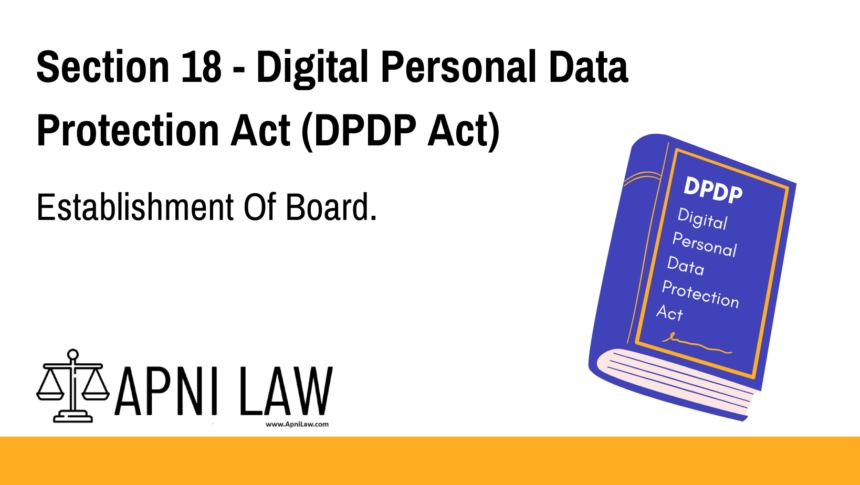Code: Section 18 DPDP
(1) With effect from such date as the Central Government may, by notification,
appoint, there shall be established, for the purposes of this Act, a Board to be called the
Data Protection Board of India.
(2) The Board shall be a body corporate by the name aforesaid, having perpetual
succession and a common seal, with power, subject to the provisions of this Act, to acquire,
hold and dispose of property, both movable and immovable, and to contract and shall, by
the said name, sue or be sued.
(3) The headquarters of the Board shall be at such place as the Central Government
may notify.
Explanation of Section 18 DPDP
Section 18 introduces the Data Protection Board of India (DPBI). The Central Government will form this board to enforce the rules of the Digital Personal Data Protection Act.
This section clearly defines:
- The formation of the Board through a government notification.
- The Board’s status as a legal entity.
- Its authority to manage property and contracts.
- Its ability to initiate or face legal proceedings.
- The government’s control over the location of the headquarters.
This structure allows the Board to function independently and carry out its duties effectively.
Illustration
Example 1: Creation of the Data Protection Board
The Central Government issues a notification on January 1st. As a result, the Data Protection Board of India is formed. It can now begin handling data privacy matters.
Example 2: The Board Acts as a Legal Body
An organization violates the data protection law. The Board initiates legal action against it. Since the Board is a corporate entity, it can sue the organization directly.
Common Questions and Answers on Section 18 DPDP
- What is the purpose of the Data Protection Board of India?
→ The Board ensures that individuals’ personal data is protected and used lawfully. - What powers does the Board have?
→ It can own property, enter into agreements, and take legal action. It also ensures compliance with the DPDP Act. - Who decides where the Board will be located?
→ The Central Government selects the location of the headquarters.
Conclusion
Section 18 of the DPDP Act lays the foundation for data protection in India. It sets up the Data Protection Board of India and gives it legal authority to enforce privacy rules. With a proper structure and government support, the Board plays a vital role in protecting personal data.
For more legal explanations, visit ApniLaw!











